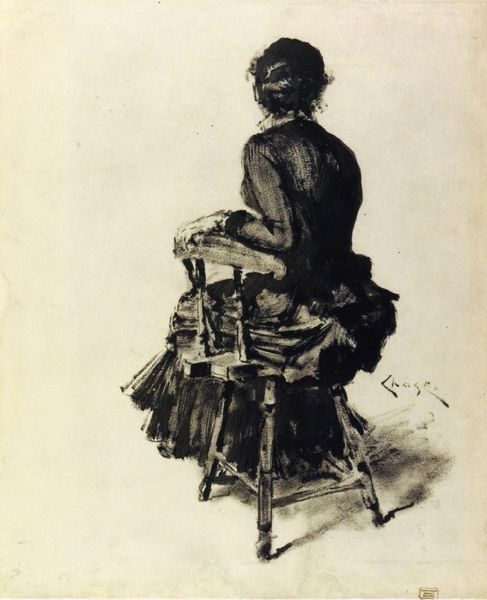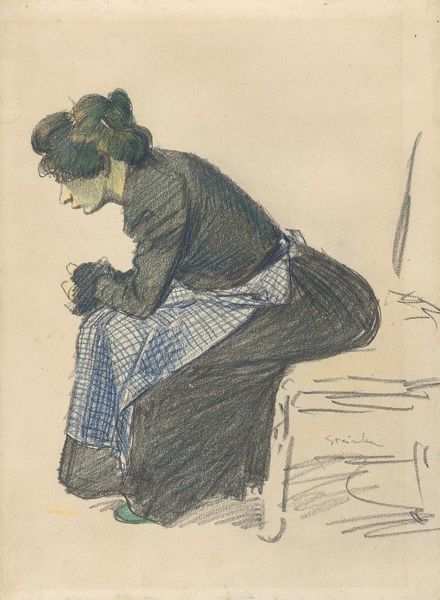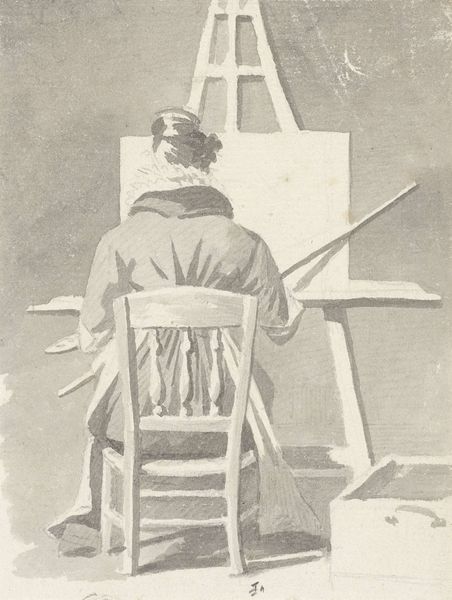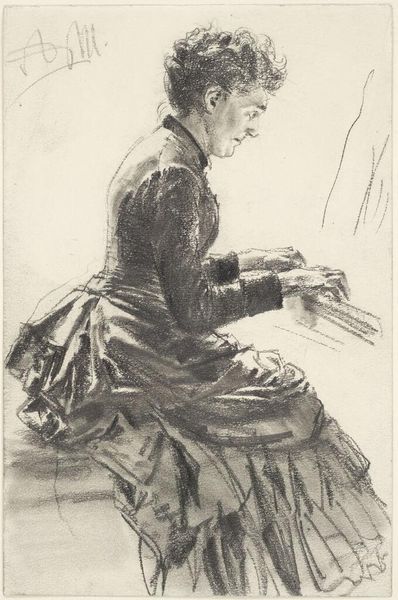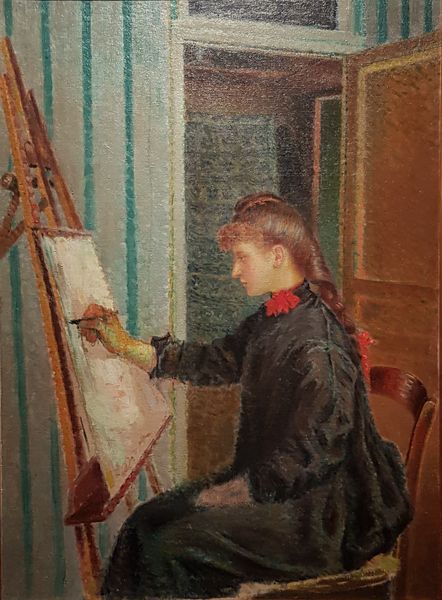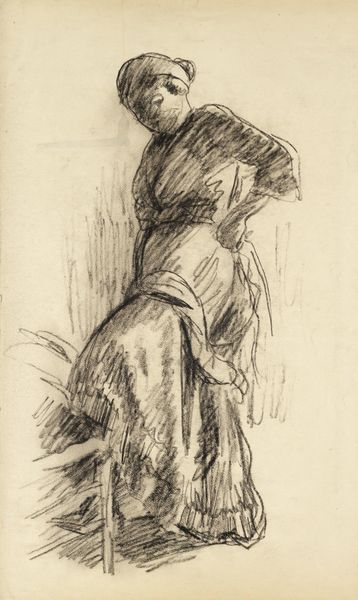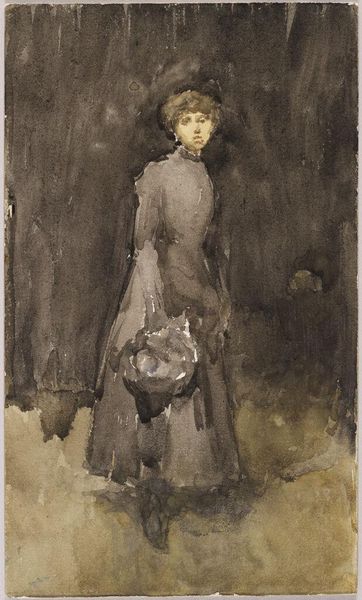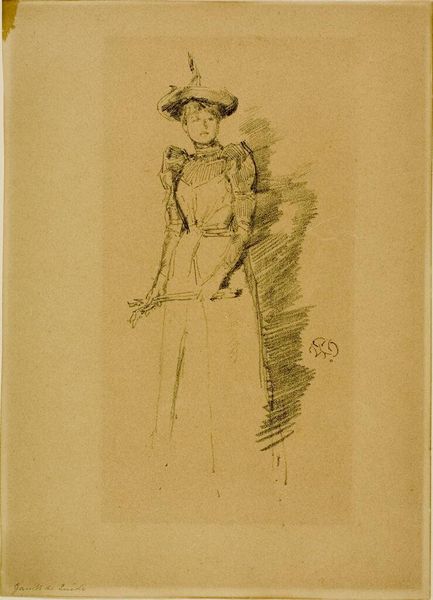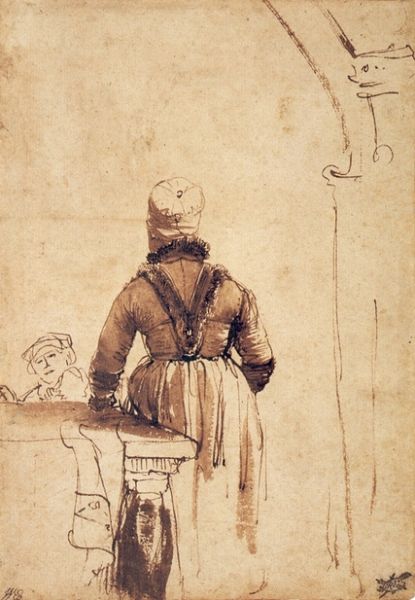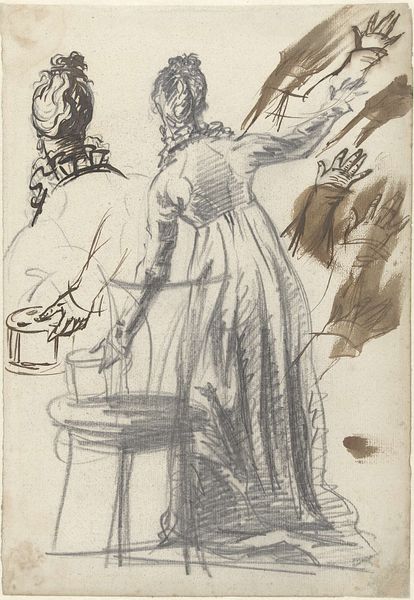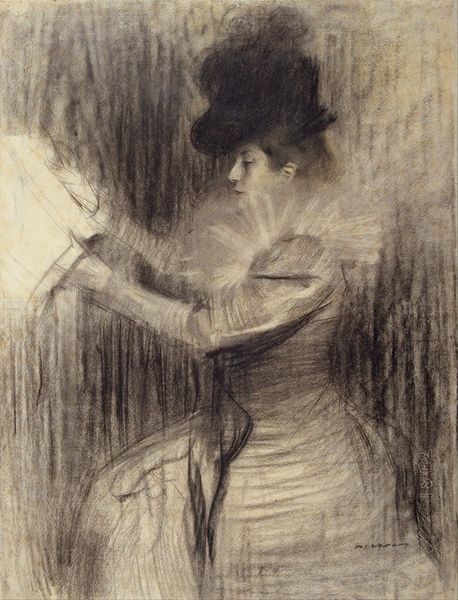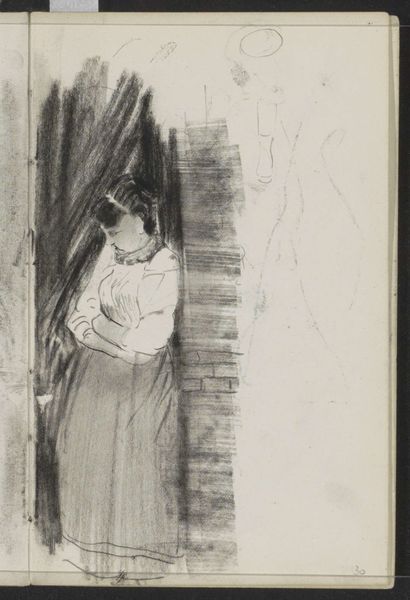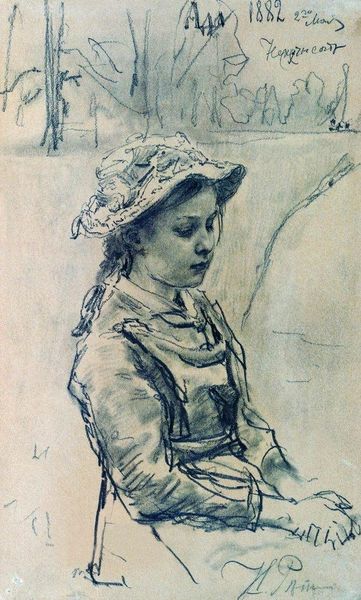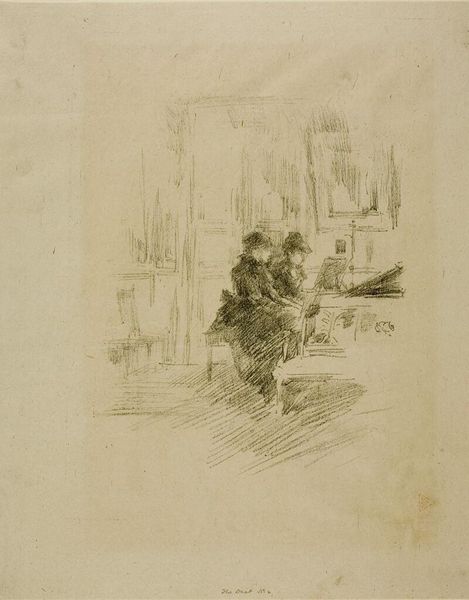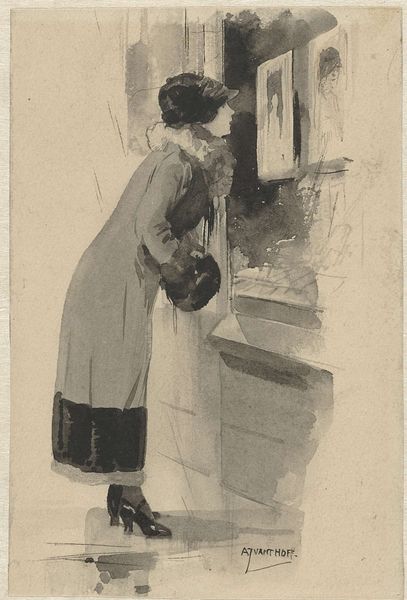
painting, watercolor
#
portrait
#
painting
#
impressionism
#
oil painting
#
watercolor
#
female-portraits
#
watercolor
#
realism
Copyright: Public domain
Editor: Here we have Vasily Polenov’s "Portrait of N. Yakunchikova," an oil painting made with watercolor from 1882. The muted colors create a rather somber mood, don't you think? How do you interpret this work, focusing on its form? Curator: The success of this painting lies primarily in Polenov's handling of light and form. Note how the overall composition is structured by contrasting blocks of tone: the dark greens and blues of the subject's clothing against the faded light yellow wall. Where do you think the artist is attempting to draw our eye first? Editor: I suppose the eye goes to the painterly area to the left of the figure, where the darkness is thickest and most contrasting with the wall, although the figure painting feels equally important, too. How does the balance function overall? Curator: It functions through asymmetry. See how the positioning of Yakunchikova slightly off-center generates visual interest. The soft gradations of color on the wall contribute a delicate atmosphere, playing off of the more rigid shapes in her easel. Furthermore, Polenov’s choice to leave parts of the paper untouched provides visual rest amidst all of the color variations. Editor: The untouched parts give the watercolor breathing room. It makes it feel light. It's as if Polenov is using negative space as an active element. I like how we’ve been able to really tease apart the relationship between all of its internal components. Curator: Precisely. We can truly grasp how the formal interplay generates and modulates meaning by looking intently at how different compositional elements cohere.
Comments
No comments
Be the first to comment and join the conversation on the ultimate creative platform.
